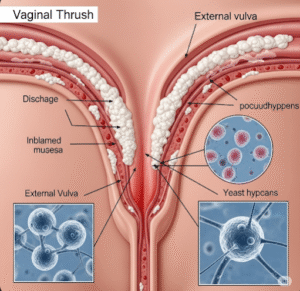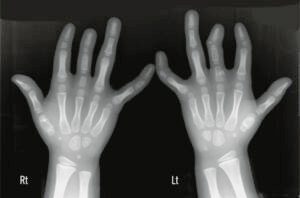What it is
Endometrial ablation is a minimally invasive procedure that destroys (ablates) the lining of the uterus (endometrium) to reduce or stop abnormal menstrual bleeding. It is designed for women who suffer from heavy or prolonged periods and who do not plan to have more children.
In Korea, endometrial ablation is performed using modern techniques and advanced medical equipment, making it a safe, quick, and effective option for women who seek alternatives to hysterectomy or long-term medications.
➡️ Key facts about endometrial ablation:
- Performed as an outpatient procedure (often same-day discharge)
- Uses different energy sources such as heat, cold, radiofrequency, or microwaves
- Uterus remains intact, but pregnancy after the procedure is unsafe and not recommended
Why it’s done
Endometrial ablation is recommended for women who suffer from abnormal uterine bleeding that interferes with daily life and has not improved with medications.
✔️ Common reasons for the procedure:
- Heavy or prolonged menstrual periods (menorrhagia)
- Bleeding that leads to anemia or fatigue
- Irregular bleeding not controlled by hormonal therapy
- Desire to avoid hysterectomy but still manage symptoms effectively
✔️ Benefits of endometrial ablation:
- Reduces or eliminates menstrual bleeding
- Minimally invasive with short recovery time
- No large surgical incisions or long hospital stays
- Preserves uterus (but prevents safe future pregnancy)
Alternatives
Endometrial ablation may not be the first treatment option, and alternatives can be considered depending on the patient’s age, health, and fertility goals.
🔹 Medication therapy:
- Hormonal birth control (pills, injections, IUDs) to regulate or reduce bleeding
- Non-hormonal options such as tranexamic acid or NSAIDs
🔹 Minimally invasive procedures:
- Hysteroscopic resection of polyps or fibroids if these are causing bleeding
- Uterine artery embolization (shrinking fibroids by blocking blood supply)
🔹 Surgical option:
- Hysterectomy (removal of uterus), considered if bleeding is severe and childbearing is not desired
🔹 Watchful waiting:
- In mild cases, monitoring symptoms without intervention may be an option
Preparation
Preparation for endometrial ablation is straightforward but crucial for safety.
➡️ Medical preparation:
- Pelvic exam, ultrasound, or hysteroscopy to check the uterus
- Biopsy of endometrium to rule out cancer or precancerous conditions
- Blood tests to check for anemia or infection
- Sometimes pre-treatment with hormonal medication to thin the endometrial lining
➡️ Personal preparation:
- Discussion with the doctor about fertility goals (procedure is not for women planning pregnancy)
- Arranging transportation, as sedation or anesthesia may be used
- Light meals or fasting before the procedure if general anesthesia is planned
➡️ Mental preparation:
- Understanding that periods may become lighter or stop completely
- Preparing for a short recovery period (usually a few days)
How it’s done
Endometrial ablation in Korea is performed with different techniques, depending on hospital facilities and the patient’s condition.
✔️ Step 1 – Anesthesia
- Local, regional, or general anesthesia may be used depending on the method
- Many cases require only mild sedation
✔️ Step 2 – Accessing the uterus
- A thin device is inserted through the vagina and cervix into the uterus
- No incisions are needed
✔️ Step 3 – Destroying the lining
- Different energy sources can be used:
➡️ Thermal balloon: A balloon filled with heated fluid burns the uterine lining
➡️ Radiofrequency energy: A mesh device delivers controlled energy to ablate the endometrium
➡️ Cryoablation (freezing): Cold temperatures destroy endometrial tissue
➡️ Microwave or electrocautery: Heat energy applied directly to the lining
✔️ Step 4 – Completion
- The device is removed
- The uterus is checked to ensure no complications
✔️ Duration:
- The entire procedure typically takes 20–45 minutes
- Most women return home the same day
Recovery
Recovery after endometrial ablation is usually quick and uncomplicated.
➡️ Immediate recovery:
- Mild cramping, watery discharge, or spotting for a few days
- Fatigue due to anesthesia, but patients can walk the same day
➡️ Physical recovery:
- Return to normal activities within 2–3 days
- Avoiding sexual intercourse, tampons, or douching for 2–3 weeks
- Follow-up appointment to ensure healing
➡️ Results:
- Many women experience significantly lighter periods
- In some cases, periods may stop completely
- Effectiveness depends on age and size of uterus
➡️ Emotional recovery:
- Relief from heavy bleeding often improves quality of life
- Counseling may help if the patient experiences emotional adjustment to loss of fertility
➡️ Key recommendations:
- Adequate rest and hydration in the first few days
- Pain relief medications if cramping occurs
- Attending scheduled follow-up visits for evaluation
Treatment option in Korea
Korea is a leader in women’s health procedures, offering advanced endometrial ablation techniques with excellent patient support.
✔️ Hospital facilities:
- Equipped with the latest radiofrequency and thermal ablation devices
- Outpatient clinics offering same-day procedures
- Emergency backup care in case of complications
✔️ Medical expertise:
- Experienced gynecologic surgeons skilled in minimally invasive techniques
- Careful patient screening to ensure safety and effectiveness
- High success rates in reducing heavy menstrual bleeding
✔️ Post-procedure care:
- Comprehensive follow-up programs for monitoring recovery
- Access to counseling for women adjusting to life without menstruation
- Holistic approach with integration of traditional Korean health practices for recovery support
✔️ Cultural aspect:
- Korean women’s healthcare strongly emphasizes comfort, safety, and quick return to daily life
- Hospitals often combine medical procedures with personalized aftercare services
➡️ Highlight: Endometrial ablation in Korea offers safe, minimally invasive treatment for heavy menstrual bleeding, providing women with relief, faster recovery, and improved quality of life without the need for major surgery.













